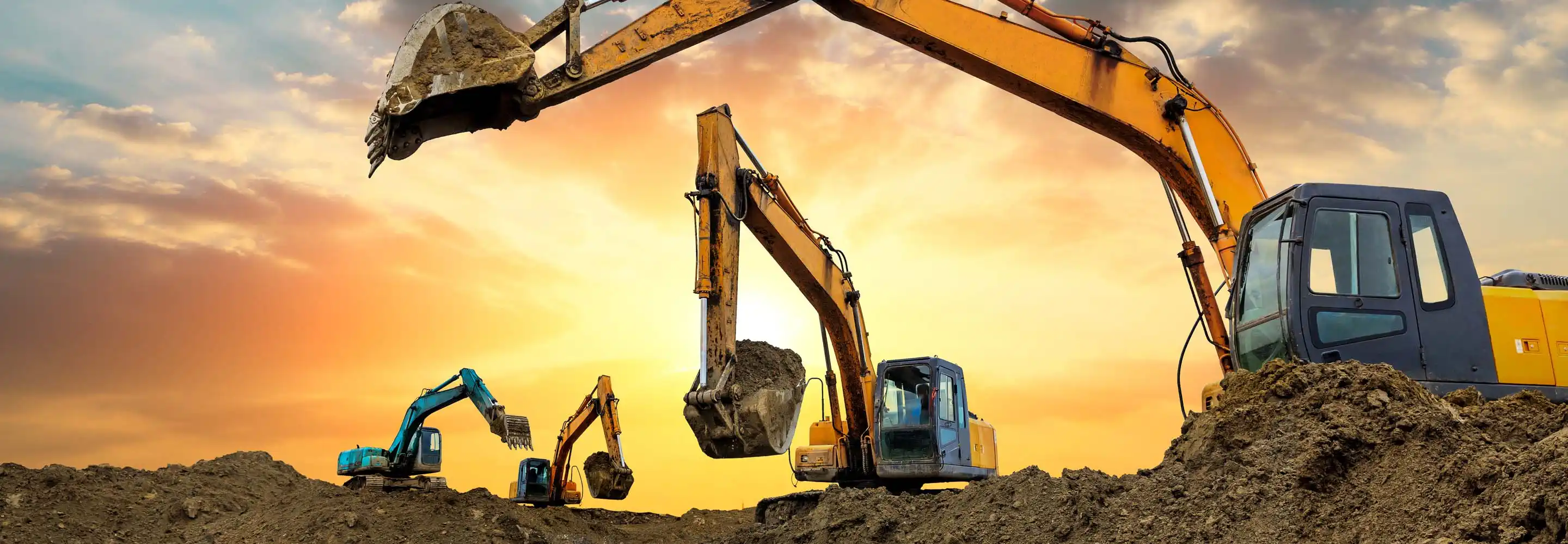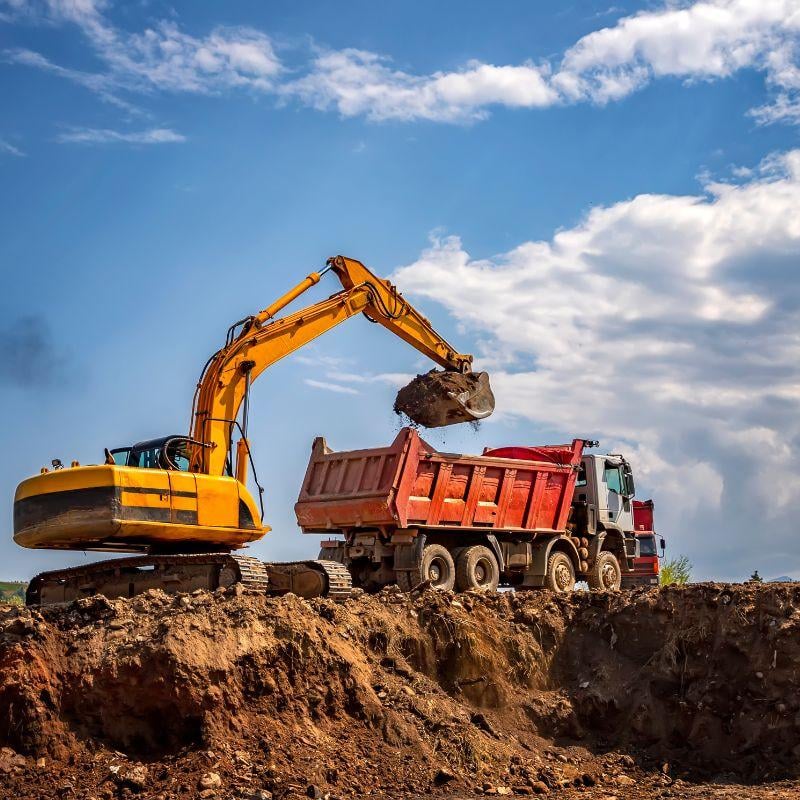Checking Out the Financial Perks of Leasing Building Devices Compared to Having It Long-Term
The decision in between owning and renting out building and construction equipment is crucial for financial monitoring in the market. Leasing offers instant cost financial savings and functional versatility, allowing business to assign resources a lot more effectively. Understanding these subtleties is necessary, particularly when taking into consideration exactly how they align with certain job needs and monetary techniques.

Expense Comparison: Renting Vs. Possessing
When reviewing the monetary implications of renting versus possessing building and construction tools, a complete expense comparison is crucial for making notified decisions. The choice in between possessing and renting can significantly influence a business's profits, and comprehending the associated expenses is essential.
Leasing building tools generally includes reduced ahead of time costs, enabling services to allot funding to various other functional needs. Rental costs can collect over time, possibly going beyond the expenditure of ownership if tools is required for an extensive duration.
Conversely, owning building devices needs a significant initial financial investment, together with continuous prices such as depreciation, financing, and insurance coverage. While ownership can result in long-term savings, it also binds capital and might not give the very same degree of versatility as leasing. Additionally, owning equipment demands a dedication to its use, which may not always straighten with task demands.
Ultimately, the choice to rent out or have needs to be based on an extensive analysis of particular project demands, monetary capacity, and long-term critical goals.

Maintenance Responsibilities and expenditures
The selection in between possessing and renting out building and construction devices not only involves financial factors to consider yet likewise incorporates recurring upkeep costs and responsibilities. Owning tools needs a considerable commitment to its maintenance, that includes routine examinations, repair services, and prospective upgrades. These responsibilities can quickly gather, causing unforeseen costs that can stress a spending plan.
On the other hand, when leasing equipment, upkeep is usually the responsibility of the rental firm. This plan permits service providers to stay clear of the monetary burden related to deterioration, as well as the logistical difficulties of scheduling fixings. Rental agreements usually include provisions for upkeep, implying that contractors can concentrate on finishing projects instead of fretting about tools condition.
Moreover, the diverse variety of tools available for lease enables business to pick the current models with innovative technology, which can improve performance and productivity - scissor lift rental in Tuscaloosa, AL. By selecting rentals, companies can prevent the lasting liability of tools depreciation and the connected upkeep headaches. Ultimately, examining upkeep expenditures and responsibilities is vital for making an educated choice about whether to have or rent out construction equipment, considerably affecting total task expenses and operational effectiveness

Depreciation Effect On Ownership

A significant element to take into consideration in the choice to own building devices is the effect of depreciation on general possession prices. Devaluation stands for the decrease in worth of the tools over time, influenced by elements such as usage, deterioration, and innovations in modern technology. As tools ages, its market worth diminishes, which can significantly affect the owner's financial position when it comes time to sell or trade the equipment.
For construction firms, this depreciation can translate to significant losses if the devices is not utilized to its greatest capacity or if it becomes obsolete. Proprietors should account for devaluation in their financial estimates, which can result in greater general costs contrasted to renting. In addition, the tax obligation effects of depreciation can be intricate; while it may give some tax advantages, these are typically offset by the truth of reduced resale value.
Inevitably, the burden of devaluation emphasizes the value of understanding the long-lasting economic commitment associated with owning building tools. Companies need to carefully review how usually they will utilize the tools and the potential monetary influence of devaluation to make an informed decision concerning possession versus renting out.
Financial Versatility of Renting Out
Renting out construction devices uses substantial financial flexibility, enabling business to allot sources extra efficiently. This versatility is especially critical in an industry characterized by varying job needs and differing work. By choosing to rent out, companies can prevent the significant funding outlay required for purchasing equipment, protecting capital for other operational needs.
Additionally, leasing devices allows business to tailor their equipment choices to resource specific project needs without the lasting dedication linked with possession. This implies that services can quickly scale their devices inventory up or down based upon current and awaited job demands. Subsequently, this versatility reduces the threat of over-investment in equipment that may become underutilized or outdated gradually.
One more financial advantage of renting is the potential for tax obligation benefits. Rental payments construction equipment shipping are often considered operating costs, permitting for instant tax reductions, unlike depreciation on owned and operated tools, which is spread out over several years. scissor lift rental in Tuscaloosa, AL. This prompt cost recognition can better enhance a company's money position
Long-Term Task Considerations
When assessing the lasting demands of a building business, the choice between leasing and owning devices becomes much more intricate. Key variables to think about include job period, frequency of usage, and the nature of upcoming tasks. For jobs with extended timelines, buying tools may appear advantageous because of the capacity for reduced overall expenses. Nonetheless, if the equipment will not be made use of regularly throughout tasks, owning may bring about underutilization and unnecessary expenditure on insurance, maintenance, and storage space.
Furthermore, technical advancements pose a significant consideration. The construction industry is developing rapidly, with new tools offering boosted performance and safety and security attributes. Renting out permits companies to access the most recent technology without dedicating to the high in advance costs associated with buying. This flexibility is particularly beneficial for businesses that take care of varied projects requiring various kinds of equipment.
Furthermore, economic stability plays an important function. Possessing devices frequently requires considerable capital financial investment and depreciation worries, while renting permits even more predictable budgeting and cash money flow. Ultimately, the selection between renting out and owning must be aligned with the calculated purposes of the building organization, thinking about both existing and anticipated job needs.
Conclusion
In final thought, leasing building and construction tools supplies substantial economic benefits over long-lasting possession. Eventually, the decision to lease rather than own aligns with the dynamic nature of construction projects, permitting for flexibility and accessibility to the most recent tools without the monetary problems connected with ownership.
As equipment ages, its market value diminishes, which can significantly affect the proprietor's economic setting when it comes time to offer or trade the equipment.
Renting out building equipment provides significant financial adaptability, permitting business to assign sources a lot more effectively.Additionally, renting out devices allows companies to customize their equipment choices to details job requirements without the next lasting dedication associated with possession.In final thought, renting building and construction devices offers significant financial benefits over long-lasting possession. Eventually, the choice to lease rather than very own aligns with the dynamic nature of building projects, enabling for flexibility and access to the latest devices without the financial concerns linked with ownership.